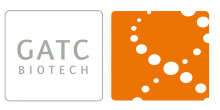- Home
- About
- Partners
- Newcastle University
- University of L'Aquila
- University of Manchester
- Alacris Teranostics GmbH
- University of Pavia
- Polygene
- Consiglio Nazionale delle Ricerche
- INSERM
- Certus Technology
- Charité Universitaet Medizin
- GATC Biotech
- University Medical Center Hamburg Eppendorf
- Evercyte GmbH
- University Hospital of Cologne
- PRIMM Srl
- University of Freiburg
- University of Antwerp
- Finovatis
- Research
- SYBIL at a glance
- Bone
- Growth plate
- Desbuquois dysplasia
- Diastrophic dysplasia
- MCDS
- Osteopetrosis
- Osteoporosis
- Osteogenesis imperfecta
- Prolidase deficiency
- PSACH and MED
- Systems biology
- SOPs
- Alcian Blue staining
- Bone measurements
- BrdU labelling
- Cell counting using ImageJ
- Chondrocyte extraction
- Cre genotyping protocol
- DMMB assay for sulphated proteoglycans
- Densitometry using ImageJ
- Double immunofluorescence
- Electron microscopy of cartilage - sample prep
- Extracting DNA for genotyping
- Grip strength measurement
- Histomorphometry on unon-decalcified bone samples
- Immunocytochemistry
- Immunofluorescence
- Immunohistochemistry
- Quantitative X-ray imaging on bones using Faxitron and ImageJ
- Skeletal preps
- TUNEL assay (Dead End Fluorimetric Kit, Promega)
- Toluidine Blue staining
- Toluidine Blue staining
- Von Kossa Gieson staining
- Wax embedding of cartilage tissue
- Contact Us
- News & Events
- Links
- Portal
GATC Biotech
 GATC Biotech is Europe’s leading service provider of DNA sequencing. For over two decades the company has offered sequencing and bioinformatics solutions for individual samples, transcriptomes and regulomes, up to whole genomes. GATC Biotech has sequenced more than 5 million samples, thousands of bacterial, plant or other whole genomes as well as hundreds of whole human genomes. GATC´s subsidiary LifeCodexx emphasises the development of clinically validated molecular diagnostic tests and offers a risk-free alternative to common invasive examination methods such as amniocentesis. Headquartered in Constance, Germany, GATC Biotech has more than 150 employees and serves over 10,000 academic and industrial customers in 40 countries. The employees are mostly scientists with long-term experience in biotechnology, biochemistry and molecular biology. GATC Biotech has a R&D department fully dedicated to evaluate and implement newest technologies.
GATC Biotech is Europe’s leading service provider of DNA sequencing. For over two decades the company has offered sequencing and bioinformatics solutions for individual samples, transcriptomes and regulomes, up to whole genomes. GATC Biotech has sequenced more than 5 million samples, thousands of bacterial, plant or other whole genomes as well as hundreds of whole human genomes. GATC´s subsidiary LifeCodexx emphasises the development of clinically validated molecular diagnostic tests and offers a risk-free alternative to common invasive examination methods such as amniocentesis. Headquartered in Constance, Germany, GATC Biotech has more than 150 employees and serves over 10,000 academic and industrial customers in 40 countries. The employees are mostly scientists with long-term experience in biotechnology, biochemistry and molecular biology. GATC Biotech has a R&D department fully dedicated to evaluate and implement newest technologies.
GATC roles in SYBIL
GATC Biotech will perform genome, transcriptome and epigenome analysis by combining different technologies according to the different scientific approaches within the course of the projects. The analysis includes library preparation, sequencing and bioinformatic analysis at highest quality and with most cost efficient output all the time. Special attention will be paid to the development of the epigenome analysis workflow, which is based on the emerging technology for detection of chemically modified bases provided by Pacific Biosciences.
Facilities available at GATC include offers true multiplatform sequencing using all leading sequencing technologies in its own labs: Sanger Sequencing with a fleet of 16 ABI 3730xl, Next and Third Generation Sequencing on 2 Roche GS FLX Systems, 4 Illumina HiSeq 2000 and a Pacific Biosciences’ PacBio RS. GATC Biotech’s acknowledged bioinformatics solutions allow high-end data analysis for its customers in pharmaceutical, diagnostic, chemical and food industries as well as academia.
GATC researchers involved in SYBIL
Dr Florian Ernst – PhD in molecular microbiology at the Erasmus University Medical Center, 6 years of posdoc experience at the Ersnt-Moritz-Arndt University of Greifswald in molecular biology, (co-) author of several peer-revied articles (Am J Hum Genet).
Dr Yadhu Kumar – Project Manager Bioinformatics, 10 years of experience in bioinformatics software development, role in the project: bioinformatics development
Tina Schleicher – Data Analysis Senior Specialist at GATC Biotech. Role in the project: Project Manager
Dr Kristina Kampmann – Data Analysis Specialist at GATC Biotech. Role in the project: Project Manager (from December 2017)


